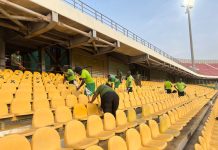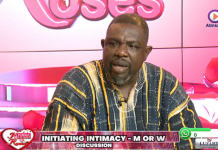Time and time again we see the importance of hydration being stated, and we have certainly done it plenty of times ourselves. The problem is, in a lot of cases it is such a widely stated fact that very rarely do people take the time to peel back the implications of such a statement.
Why, exactly, is hydration as important as we say it is? How much do we really need to drink? How can I tell if I’m drinking enough? You get the picture. What starts as a simple statement quickly gives way to a whole host of other questions, the majority of which we have answered below.
Why is hydration important?
The human body is 60% water, and water plays a key role in every bodily function. We can’t make this any clearer. Water is essential not just for optimal day-to-day function, but ultimately for survival too. To neglect hydration is to neglect your health.
Hydration is particularly important in exercise, where as much as 1-2 litres an hour can be lost through sweating and breathing. Naturally, this fluid needs replacing or you risk dehydration – severe cases of which can land you in the hospital, but even minor cases will cause you to tire and overheat quickly.
Not only does hydration replace fluid lost during exercise, it also fuels muscles and fends off cramp. As such, hydration is invaluable before, during and after exercise for optimal performance.
How much do I need to drink?
The Association of UK Dieticians suggests that adults need to drink around 1.5-2 litres of water a day, which equates to around 8-10 drinks from typical 200ml glasses or mugs. Children should aim for 6-8 200ml drinks a day, but soon reach adult drinking requirements in their teenage years.
Of course, these are broad recommendations made to give you a concrete number to work to. In actual fact, your fluid requirements vary based on the following factors laid out by BUPA:
- Body weight and height – larger people sweat more than smaller people, and men generally sweat more than women
- Environment – naturally you sweat more and lose more fluid in hot, humid conditions than cold, dry ones
- Exercise intensity – the harder the exercise, the more you sweat
As such, 1.5-2 litres a day may, in fact, be too little for people regularly and intensely exercising. Hyperhydration might be a consideration in these circumstances, an avenue fully explored by U.P. founder Nick Mitchell in a separate article.
What should I drink?
The American Heart Association writes that “water is the best thing to drink to stay hydrated”, noting that as well as through water itself, water can also be gained through fruits and vegetables.
Sports drinks, i.e. those advertised as being rich in electrolytes, are only useful for people doing high intensity, vigorous exercise often in particularly hot weather. In any other circumstance they should be avoided due to their high sugar and calorie content.
Avoid drinks containing caffeine before exercise, as caffeine acts as a diuretic – causing you to lose more fluids and need the toilet more throughout your workout, which is hardly ideal.
Fruit juices and sugary fizzy drinks should also be avoided, not just because of their high sugar content, but because – as noted by John Watson, an American sports medicine physician – they “can be hard on your stomach if you are [already] dehydrated”.
Am I drinking enough?
The quickest way to tell if you’re drinking enough and appropriately hydrated is to check the colour of your urine.
Handily, the NHS have created a useful colour chart that helps you gauge the colour of your urine, and clearly indicate the point at which you need to drink more than you already have.
Alternatively, there are a number of dehydration symptoms to watch out for beyond natural thirst:
- Pain when urinating
- Dry mouth, lips or eyes
- Dizziness
- Headaches
- Tiredness
- Difficulty concentrating
Key points
- Hydration is important for optimal day-to-day functioning, and to replace fluids lost through exercise.
- As a starting point, adults need to drink 1.5-2 litres of water a day – maybe more, depending on your weight, fitness levels and other factors.
- It is best to stay hydrated with water, not caffeine, fruit juices or fizzy drinks. The former makes you need the toilet more, and the latter contain too much sugar and put unnecessary strain on your stomach.
- Stay on top of your hydration levels by noticing the colour of your urine – the lighter it is, the more hydrated you are.
upfitness


























